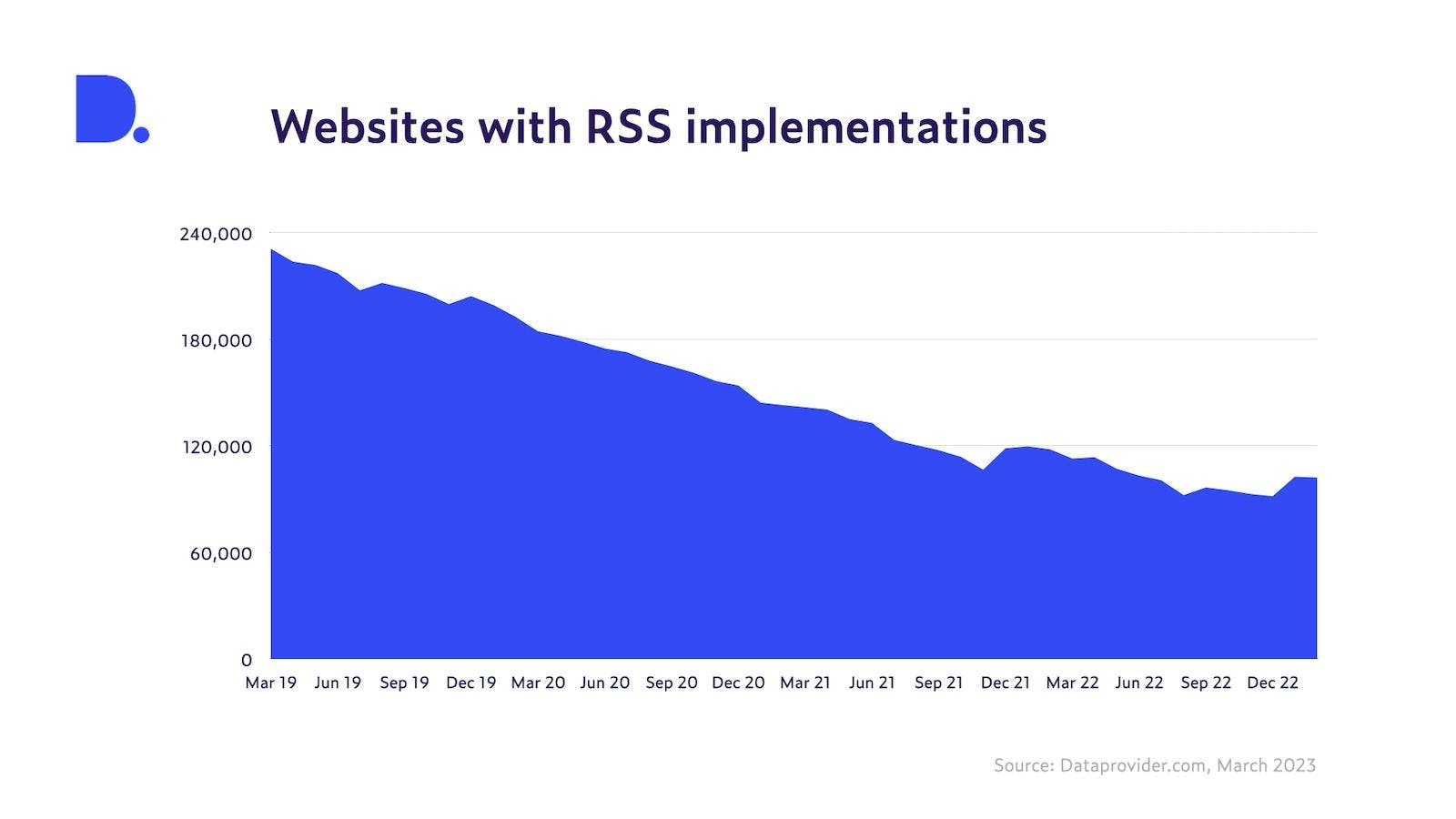Are we feed up yet?
- about 1 year ago
- 2 min read
If you have been around the internet for a while, you might remember RSS feeds, a tool to keep track of your favorite websites. RSS stands for Rich Site Summary or Really Simple Syndication and refers to a text document that contains complete or summarized text from a website in addition to metadata, such as author name or publishing date.

RSS documents are also frequently labeled as "feed", "web feed" or "channel". Even if you have never heard of RSS or feeds, you may still recognize the associated icon, which can still be found on many websites.
In order to keep track of feeds, you need a feed aggregator. There are many options to choose from; popular RSS readers today are Feedly, NetNewsWire, Flipboard, The Old Reader or Feedreader, to name a few. Once you have a reader, you need to provide the url of the website or subsection of a website that you would like to track.
Now, every time there is a new publication, your feed reader will display either the full version or a part of the text. The beautiful thing about these aggregation tools is that it allows you to keep track and curate information from your favourite websites and other platforms in one place. You can access updates from multiple sources — any updates are then immediately downloaded so that you will never miss any new posts.
Our data suggests that between March 2019 and March 2023 the number of websites with a dedicated RSS page has more than halved.
Despite its popularity in the early 2000s, RSS has seen a steady decline over the years. Our data suggests that between March 2019 and March 2023 the number of websites with a dedicated RSS page has more than halved. Some of the reasons for the decline are the rise of social media platforms, the lack of support for RSS in some newer content management systems and web browsers, and greater reliance on mobile apps over traditional websites.

So does the steady decline of RSS feed mean it will get extinct soon?
While you personally may no longer rely on RSS feeds, some content providers still depend on it.or example, Spotify or Apple Podcasts support RSS feed integration for their content to issue timely updates to their listeners. If you are the producer of content on the web, you should still deploy RSS to ensure your information gets spread and discovered more easily.
Yair Rosenberg over at The Atlantic recently made a good case for reviving RSS: it is a convenient and easy-to-use tool to take back control of what and how you consume information on the web. Algorithms deployed by social media platforms determine what you see as well as what you don’t see. It’s easy to become a passive consumer of whatever information an algorithm presents to you. RSS allows you to take on a more active role. By getting all the updates from your favourite sources, you can select what, when and how to consume it. Of course, you can still create your own information bubble by only following sources that you are truly interested in, but at least you are less likely to miss what truly matters to you and can reduce the clutter of irrelevant information.
So perhaps it is time to revive RSS. It certainly remains a valuable tool for anyone who wants to stay informed on their favorite websites.
This article inspired us to activate our own RSS. So, if you add https://www.dataprovider.com/rss.xml to your reader, you will never miss a post from us.